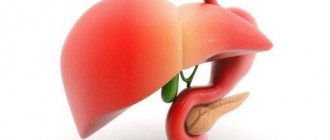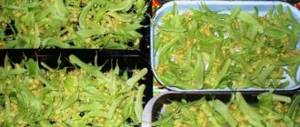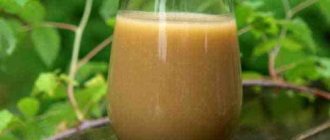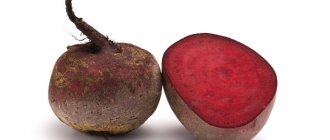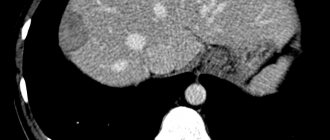We often find dill at the dinner table. It is known to everyone as a spice, a herb that is used in cooking. Few people know that the beneficial qualities of not only dill, but also the seeds and roots are used in the treatment of kidney pathologies, as an addition to medications. And subsequently used as a prophylactic agent to protect the body from repeated exacerbations of the disease.
What are the benefits of dill for kidney health?
The beneficial properties of dill have long been known to mankind. It was used to treat various diseases back in Ancient Egypt and Ancient Greece.
Doctors from these countries noticed the beneficial properties of dill seed for kidney diseases. It is still widely used in their complex treatment, as an addition to medications.
The article discusses the beneficial properties of dill for various kidney pathologies.
Recipe with dill and parsley
To prepare the mixture, you need to take two large bunches of fresh dill and parsley. Grind everything in a blender. Add the juice of half a lemon and mix thoroughly. Divide the resulting mixture into five portions.
Consume them throughout the day, one serving at regular intervals, washed down with natural apple juice. You should drink at least one liter of it per day. In the intervals between doses of the mixture, you must drink clean water without gas. It should be drunk at least two liters per day.
If everything is done correctly, by the evening the patient will feel a pronounced diuretic effect.
Dill seed infusion for kidney stones
Take one tablespoon of dill seeds, previously crushed in a blender. Pour the mixture with a quarter liter of boiling water. Close the lid and leave for twenty minutes. Using gauze, strain the resulting infusion. Then drink it one tablespoon up to five times a day. Can be taken daily for a long time until clinical effect occurs.
Baths with dill infusion
Using this remedy you can reduce pain. A decoction of dill seed also has an antimicrobial effect. To prepare it, you need to take twenty liters of water heated to a temperature of forty degrees.
Under no circumstances should water be hot during cystitis; it is harmful. This may lead to the spread of infection. Pour three liters of dill decoction into it. Sit in this water and stay there for up to twenty minutes. After the procedure, you need to thoroughly wipe the skin with a towel.
Lie down in a warm bed and spend three hours there.
Dill seed powder
Grind the dill seeds thoroughly in a blender. Then take half a teaspoon three times a day. Chew thoroughly and drink water. You can use the powder for a long time until the condition improves.
Dill seed decoction
Pour a glass of boiling water over a dessert spoon of seeds. Wrap in a towel and let sit for half an hour. Afterwards, you can take two tablespoons of this decoction half an hour before meals. You can take it up to five times a day. The course of treatment lasts up to three weeks
A decoction of dill seeds for kidney failure
To prepare it, take a tablespoon of seeds. Grind in a blender or coffee grinder to a powder.
Then take one tablespoon of powder and pour a glass of boiling water, let it sit for several hours. Then it must be strained through cheesecloth.
Drink at least two glasses of this liquid daily for a long time. To enhance the effect, you can brew dill seeds and flax seeds together in equal parts.
Treatment with folk remedies has a good effect in the treatment of kidney diseases. It should not be carried out without prior consultation with your doctor. It is carried out together with medications as part of complex therapy. Herbal medicine should not be used as the only treatment and should not replace medications and other therapies.
- iarriba
Source: https://www.1000listnik.ru/znaharskie/ukrop-dla-pocek.html
Plant composition
The green part of the plant and the seeds consist of:
- ascorbic, nicotinic, oleic, linoleic acids;
- thiamine;
- carotene;
- flavonoids;
- calcium;
- potassium;
- phosphorus;
- manganese;
- gland;
- vitamins (PP, B, E, C, A).
How to brew and take the decoction correctly
The broth is prepared fresh every day. If necessary, you can store it for a day in the refrigerator, warming it up before use.
Standard preparation scheme:
- Pour dill seeds with water at the rate of 1 tbsp per 1 glass of water. l. raw materials.
- Bring to a boil, simmer for 10 minutes over low heat after boiling.
- Cool. Strain if necessary.
Depending on the recipe chosen, the process of preparing the decoction may vary.
It is recommended to take the decoction on an empty stomach three times a day, 30-40 minutes before meals. A single dose is no more than 100-120 ml. To prevent diseases, drink 1 tbsp. l. 3-4 times a day.
For reference. To preserve the medicinal properties of dill seed, you need to store it in a glass or ceramic container, tightly covering it with a lid. The storage location must be protected from moisture and out of reach of sunlight.
Traditional medicine recipes
Before starting treatment, consultation with a doctor is required. Dill seeds do not replace full-fledged drug therapy and are used exclusively as an aid.
Let's consider options for alternative treatment of pathologies of the urinary system and elimination of symptoms of the disease:
- When urine stagnation, dill infusion is used. Fresh plants, seeds and roots are suitable for treatment. Directions for preparing the decoction: 3 tbsp. l. crushed raw materials, pour 1 glass of hot water and cook in a water bath for 15 minutes. Let cool for half an hour. Strain the cooled broth and add boiled water to the original volume. Take ⅓ glass before meals 3 times a day.
- For the treatment and prevention of renal colic, a herbal compress is used. To prepare it, you need to take dill, parsley and celery, brew with boiling water and leave for 20 minutes. Moisten a cloth in the resulting broth and apply it to the kidney area, insulating it on top. Carry out the procedure every day before going to bed for at least 14 days.
- A remedy made from the seeds of a plant brewed in a thermos for 40-60 minutes will help against urinary incontinence due to cystitis. Proportions: 1 tbsp. l. seeds per 250 ml of boiling water. The finished medicine is taken in one dose in full.
Kidney cleansing with dill
To maintain normal functioning of the kidneys, it is necessary to periodically cleanse them. Unfavorable external factors, impaired metabolism, and poor lifestyle contribute to contamination of the genitourinary system.
The most accessible means for cleaning at home is a fasting day, during which you eat fresh dill, parsley (2 large bunches each) and 1 liter of pure apple juice (without pulp or impurities). The greens are pre-mixed and divided into 5 doses. Each dose of the mixture is washed down with 1 glass of juice. In between meals, drink 1 glass of purified water every hour. The last glass of water is drunk at night.
For reference. Before cleaning, you need to adhere to a dietary diet, increasing the consumption of vegetables, fruits, and juices. Before starting the treatment procedure, do an enema (immediately after sleep). A repeat enema is necessary the next morning.
Precautions and contraindications
Despite the extensive list of beneficial properties, dill as a remedy is not suitable for everyone.
Contraindications include:
- hypotension;
- individual intolerance;
- weakened muscle tone;
- gallbladder diseases.
During pregnancy, it is recommended to limit the use of the drug due to the threat of miscarriage.
Violation of the dosage can provoke an allergic reaction in the body in the form of nausea, dizziness, and abdominal pain. In this case, treatment should be stopped.
Conclusion
Like any traditional medicine, dill should not be considered as an independent medicine for the treatment of the urinary system. The combination of pharmaceutical drugs and dill infusion will allow you to get a noticeable effect from the treatment.
Before starting therapy, it is necessary to consult a doctor who will explain how to drink the decoction without harm to the body and determine the required dosage and duration of treatment.
Source: https://agronom.expert/posadka/ogorod/zontichnye/ukrop/kak-zavarivat-i-pit-dlya-pochek.html
Reviews
In practice, it has been noted that women use seeds specifically to eliminate a disease such as cystitis. The best treatment results were obtained using complex therapy, including medications, decoctions, infusions and baths. In addition, there is an excellent pain-relieving effect of using dill. This is evidenced by multiple positive reviews from women who have already gotten rid of cystitis.
I treated my kidneys with dill when I was young. For this I prepared a decoction. The herb did help, but I also used medications prescribed by my doctor to do it. The course of treatment lasted 1.5 months.
Ivleeva Svetlana, 54 years old, Blagoveshchensk
After giving birth, I could not normalize my kidney function for a long time. The frequent urge to go to the toilet became annoying. But I’m somehow not used to being treated with pills; if I get sick, I always treat myself at home using my grandmother’s methods. So this time I decided to do the same. I found information on the Internet that dill helps with cystitis. In treatment I used dill seed tincture and sitz baths. The product really helped.
Zharkova Ekaterina, 28 years old, Voronezh
For cystitis I used various tinctures and decoctions from this herb. A friend advised me to do this. After two weeks of use, no results appeared. Therefore, I turned to my therapist, who advised me to use pharmaceutical products in addition to decoctions and tinctures. Cystitis disappeared completely within 2 months after the start of treatment.
Revtova Anna, 33 years old, Krasnoyarsk
Dill for kidney treatment
We often find dill at the dinner table. It is known to everyone as a spice, a herb that is used in cooking.
Few people know that the beneficial qualities of not only dill, but also the seeds and roots are used in the treatment of kidney pathologies, as an addition to medications.
And subsequently used as a prophylactic agent to protect the body from repeated exacerbations of the disease.
Dill has long been used in folk recipes to heal and cleanse the kidneys.
Composition and characteristic properties
The twigs and seeds of dill contain a high content of vitamins and microelements. The first place in terms of content is occupied by ascorbic acid (vitamin C). Its content reaches 100 mg.
Second places in terms of quantitative indicators are firmly occupied by beta-carotene and vitamin E. Their content reaches 1 mg.
Vitamins A, PP, and B vitamins are also found in dill, but their content is no more than 1 mg.
In addition, greens contain macro- and microelements and essential oils. Most of the greens contain calcium and potassium. In addition to them, dill contains phosphorus, magnesium, and sodium. A smaller amount is allocated to iron, manganese, zinc, and copper. This content of various components makes greens not just a tasty and healthy spice, but also an indispensable medicine.
Green garden spice has a beneficial effect on the gastrointestinal tract, cardiac system, and liver due to its rich vitamin composition.
What are the medicinal properties of seeds and herbs? The unique composition has a healing effect on the body:
- has a healing effect on the cardiac system;
- improves the functioning of the gastrointestinal tract;
- helps reduce symptoms of renal pathologies;
- characterized by choleretic and diuretic properties.
Cleansing the kidneys with parsley and dill
Poor nutrition, dirty water, and external factors that disrupt metabolism contaminate the urinary organ with mucus and harmful substances.
Not all of it comes out with urine; some remains in the pelvis of the organ and over time turns into stones and sand. Cleansing periodically is good for your health. Cleansing the body will always be incomplete if you have not thought about the kidneys.
Cleaning the “internal filter” at home is very simple.
The most accessible and effective remedy is dill and parsley.
It is best to clean in spring or autumn. Recipes for using plants are based on the correct placement of the stages of the cleaning process and their medicinal properties. Before cleansing, you need to switch to a dietary diet, increasing your consumption of vegetables, fruits, and juices. For cleansing, you will need 2 rather large bunches of dill and parsley, along with apple juice without impurities (1 liter). During the cleansing process, you only need to eat one green leaf and wash it down with juice.
When you get up in the morning, it is advisable to cleanse your intestines with an enema. Prepare the greens by tossing them and dividing them into 5 portions. Throughout the day, prepared portions must be eaten, chewed thoroughly and washed down with juice. In between meals, be sure to drink a glass of water every hour.
The cleansing didn’t end there; dill and parsley, having a strong diuretic effect, will force you to get up to go to the toilet at night. The body needs help in this situation; at night you need to drink another glass of water to completely dissolve the accumulated toxins. In the morning you need to do the enema again. The cleaning process is complete.
It takes little time and gives excellent results.
Treatment and how to brew the decoction?
There are a lot of recipes that use parsley or dill to improve the urinary system. For treatment purposes, not only plant greens are used, but also seeds and roots.
The seeds of the plant are an excellent stone crushing medicine, the greens and roots are a diuretic.
Let's look at the most popular ones, which are used in the treatment of inflammatory processes, kidney stones, and stagnation of urine.
- For urolithiasis and stagnation of urine, dill decoction is widely used. Fresh plants, seeds and roots are suitable for treatment. Directions for preparing the decoction: pour chopped dill (3 tablespoons) into 250 ml of hot water and brew in a water bath for 15 minutes. Then set aside and let cool for half an hour. Strain the cooled broth and add boiled water to the original volume. Take a third of a glass before meals 3 times a day.
Decoctions, infusions of dill and parsley perfectly dissolve kidney stones.
- For painless removal of stones, use a decoction of a mixture of parsley (1 kg) and celery root. Brew the crushed plants with 1 liter of boiling water, add 1 liter of honey and let it brew for 15 minutes. Leave the mixture to steep for three days, then add another 1 liter of water and brew a second time. Drink the decoction 3 times a day before meals, 3 tbsp. l. before it ends.
- When treating stones in the bladder and kidneys, an infusion of the root or leaves of the herb is used. 4 tsp. chopped parsley root (leaves) should be brewed with 100 ml of boiling water. Leave to infuse overnight, so it is better to prepare the decoction in a thermos. The finished medicine is used before meals 3-4 times a day, in small portions of 1 tbsp. l.
- You can dissolve stones using the following remedy. 1 tsp. parsley leaves, pour 250 ml of boiling water and leave in a dark place for about 3 hours, pre-wrapped. A glass of the prepared decoction should be drunk an hour before meals, dividing it into three parts. If there are no fresh leaves, parsley root, seed or dried herb leaves are excellent for decoction.
- An effective method for treating kidney failure is parsley infusion (leaves, seeds and root). For cooking you will need 1 tsp. crushed plant leaves, seeds and roots. Mix the ingredients, pour 500 ml of boiling water over the finished mixture and leave for 2-3 hours. Strain the finished infusion, take 1 tbsp before meals. l. three times a day.
Kidney spasms can be eliminated by applying crushed and steamed greens to the site of the diseased organ.
- In the treatment and prevention of renal colic, a herbal compress is used. To prepare it, you need to take dill, parsley and celery, brew it with boiling water and let it brew for 20 minutes. Moisten a piece of cloth in the resulting infusion and apply it to the kidney area, putting heat on top. The procedure is carried out every day before bed, for at least 2 weeks.
- A suitable recipe for relieving the inflammatory process in the organs of the genitourinary system is a decoction of dill seeds. You will need 1 tbsp. l. dry seeds or 2 tbsp. l. fresh. If you grind the seeds, the result will be much more effective. Pour 500 ml of boiling water over the prepared component and let it brew for 1-2 hours. Take a third of a glass 30 minutes before meals 3-4 times a day.
Contraindications
Despite all the beneficial properties of the plant, dill and parsley, like medicines, have contraindications. Long-term use of dill can lower blood pressure and dilate blood vessels, which is dangerous for people with hypotension.
During therapy, it is necessary to monitor your well-being, as weakness, loss of strength, and even fainting may occur. In addition, due to a decrease in blood pressure, a person’s vision may be temporarily impaired.
If a person has weakened muscle tone, dill therapy is contraindicated for him.
It is highly undesirable to be treated with parsley during pregnancy, as it causes uterine spasms.
Patients with epilepsy and patients with calcium metabolism disorders are also not recommended to take products based on this plant. And, of course, do not forget about individual intolerance to plants.
When taking herbal preparations, you need to monitor your well-being and seek advice from specialists.
Source: https://etopochki.ru/kidney/terapiya/ukrop-dlya-pochek.html
Indications for use
Dill seeds can be used as an adjuvant in the treatment of cystitis, and as a primary remedy. In the presence of various diseases of the genitourinary system, they have a diuretic effect and help remove toxins from the body. Having an active antibacterial property, preparations based on dill help eliminate the source of inflammation, which leads to relief from pain in urological diseases.
The seeds also effectively help combat the following painful phenomena in the body:
- excessive excitability,
- increased blood pressure,
- coronary circulatory insufficiency,
- disturbances in the functioning of the heart and vascular system,
- impaired bile output,
- lung ailments,
- bad sleep
- disorders of the gastrointestinal tract (gastrointestinal tract),
- frequent seizures (especially in children).
Dill: benefits and harms, medicinal properties, contraindications, application
The benefits and harms of dill is an interesting question, since this greenery is often found in the most common dishes. The scope of application of dill is very wide; to evaluate its properties, you need to study the composition and characteristics of the plant.
Composition and calorie content of dill
The benefits and harms of dill for the human body are determined by the elements that make up the herbs. The plant bunches contain:
- potassium, magnesium and sodium;
- calcium and phosphorus;
- iron and copper;
- zinc and manganese;
- vitamins B1, B2, B5, B6 and B9;
- vitamins A and C;
- vitamin E;
- vitamin PP, or nicotinic acid;
- petroselinic, linoleic, palmitic and oleic acids;
- essential oils;
- cellulose.
The calorie content of dill can be considered average for greens - it is 43 kcal per 100 g.
What are the benefits of dill for the body?
The health benefits and harms of fresh dill appear in many areas. The properties of greens have the following effects on the body:
- increase resistance to infections and viruses, help with respiratory diseases;
- help relieve migraine symptoms, lower blood pressure in hypertension;
- have a beneficial effect on the stomach and intestines, help normalize digestion and metabolic processes - dill is useful for diabetes;
- reduce the load on the liver and remove accumulated toxins from the body;
- protect eyesight from diseases;
- improve the healing process of skin damage.
The plant also stimulates appetite, and drinks based on it serve as a good diuretic and help get rid of swelling. Dill greens will also benefit the heart system - the plant will strengthen blood vessels and normalize heart rhythm.
Women
The benefit of dill for a woman’s body lies, first of all, in the fact that the plant alleviates monthly ailments and improves the condition during menopause. Greens normalize hormonal levels, help cope with depression, and improve mood.
Dill is also good for a woman’s health because it helps maintain youth longer. The properties of the plant not only improve the condition of the skin and hair, but also affect reproductive abilities. Regular consumption of greens reduces the risk of developing infertility, but increases the likelihood that reproductive functions will be maintained until old age.
Men
The health benefits of dill for men are reflected in the fact that this herb has a beneficial effect on potency. The plant improves the quality of male genetic material, enhances libido, and also protects the prostate from tumors and inflammation.
The medicinal properties of dill for men are also used to prevent heart attacks and strokes. Greens promote vasodilation and relieve spasms, improve cardiac function and help fight the development of atherosclerosis.
Children
The benefits of green dill for the health of children are undeniable. The plant saturates the developing body with vitamins, supports the child’s vision and protects the baby from colds.
But it is possible to offer greens to babies without harm to health only after 8 months - dill is allowed to be added in small quantities to soups. If a negative allergic reaction does not follow, then gradually the daily dose of greens can be increased to 3-5 g. After 1.5 years, children are allowed to be given fresh greens in salads, but in an amount of no more than 10 g per day.
Attention! Since dill sometimes causes severe harm to children’s health, you should consult your pediatrician before introducing the herb into your diet.
Is it possible for pregnant and lactating women to eat dill?
The benefits of dill during pregnancy depend on the health of the expectant mother. If pregnancy proceeds without complications, then you can eat greens without fear of harm. The plant will relieve toxicosis, help get rid of swelling and generally strengthen the body of mother and child.
However, the plant should not be abused - in large quantities, greens are harmful and can cause miscarriage. If pregnancy occurs with complications, then it is better to refuse even the cosmetic use of greens.
The medicinal properties and contraindications of dill for women during lactation should be determined individually. Dill additionally stimulates the production of breast milk - the plant is highly recommended for consumption. Of course, you need to add greens to regular dishes in small quantities. And if the baby has a negative reaction, greens will have to be removed from the diet to avoid harm.
Is dill good for weight loss?
The benefits of dill for the body include the fact that greens help you lose extra pounds. The plant helps speed up metabolism and allows you to quickly remove toxins and harmful substances.
Of course, even the most strict diets do not suggest eating only dill. You need to eat greens together with other foods; dill-based drinks will be of great benefit.
Which dill is healthier: dried, frozen or brewed?
The health benefits and harms of dill appear not only when eating fresh herbs. Plant-based products are also prepared from dried or frozen raw materials by boiling green bunches of dill.
- Frozen dill has the greatest beneficial properties - it retains valuable substances in its composition in almost full volume.
- Many valuable components are preserved in dill decoctions and infusions - vitamins and microelements are present in drinks in high concentrations; dill root reveals its beneficial properties especially well.
- But as for dried greens, there is very little benefit left in them - when dried, many vitamins and minerals are simply destroyed.
Thus, it is most advisable to use dill freezing for cooking and medicinal purposes; it will have the most pronounced positive effect on health.
Compound
The benefits of dill, known to traditional healers, are due to its chemical composition, which includes the following elements:
- essential oils;
- coumarin;
- resin;
- phenolcarboxylic acids;
- vicenin;
- wax;
- fatty acid;
- protein;
- folic acid;
- cellulose;
- kaempferol.
Dill is rich in various vitamins - A, B, PP (nicotinic acid), P (rutin). The leaves contain a lot of ascorbic acid. The structural formula also includes minerals important for life: potassium, calcium, phosphorus. Manganese, zinc, and magnesium were detected in different parts of the plant. Contains sodium, copper, iron, manganese.
With stones
Urolithiasis is considered one of the most common renal pathologies. It is widespread everywhere and affects people of all ages. Most often, it begins to manifest itself at working age (from twenty to forty years). The main reasons for the development of pathology are impaired outflow of urine from the kidneys and inflammation. Usually the presence of kidney stones is accompanied by inflammatory changes in the organs of the urinary system (pyelonephritis or cystitis). Only a tenth of all patients have stones in both kidneys. More often this is a one-sided process and in most people only the right is involved in it.
In urolithiasis, stones are found:
- in the renal pelvis;
- kidney cups;
- ureters;
- bladder.
These formations consist of fibrin, salts, microorganisms and protein breakdown products.
IMPORTANT. Both dried dill seeds and fresh herbs are suitable for combating kidney stones. It contains substances that have a pronounced diuretic effect.
Recipe with dill and parsley
To prepare the mixture, you need to take two large bunches of fresh dill and parsley. Grind everything in a blender. Add the juice of half a lemon and mix thoroughly. Divide the resulting mixture into five portions. Consume them throughout the day, one serving at regular intervals, washed down with natural apple juice. You should drink at least one liter of it per day. In the intervals between doses of the mixture, you must drink clean water without gas. It should be drunk at least two liters per day. If everything is done correctly, by the evening the patient will feel a pronounced diuretic effect.
Dill seed infusion for kidney stones
Take one tablespoon of dill seeds, previously crushed in a blender. Pour the mixture with a quarter liter of boiling water. Close the lid and leave for twenty minutes. Using gauze, strain the resulting infusion. Then drink it one tablespoon up to five times a day. Can be taken daily for a long time until clinical effect occurs.
How to brew and take the decoction correctly
The broth is prepared fresh every day. If necessary, you can store it for a day in the refrigerator, warming it up before use.
Standard preparation scheme:
- Pour dill seeds with water at the rate of 1 tbsp per 1 glass of water. l. raw materials.
- Bring to a boil, simmer for 10 minutes over low heat after boiling.
- Cool. Strain if necessary.
Depending on the recipe chosen, the process of preparing the decoction may vary.
It is recommended to take the decoction on an empty stomach three times a day, 30-40 minutes before meals. A single dose is no more than 100-120 ml. To prevent diseases, drink 1 tbsp. l. 3-4 times a day.
For reference. To preserve the medicinal properties of dill seed, you need to store it in a glass or ceramic container, tightly covering it with a lid. The storage location must be protected from moisture and out of reach of sunlight.
Traditional medicine recipes
Before starting treatment, consultation with a doctor is required. Dill seeds do not replace full-fledged drug therapy and are used exclusively as an aid.
Which is healthier: dried, frozen or brewed?
Young housewives involuntarily have a question: which dill is healthier - dried or frozen? And the answer to it is unequivocal, of course, frozen. And all because when drying tender leaves, some vitamins are destroyed. And in terms of taste, dried dill is significantly inferior to its frozen counterpart.
Many housewives prefer to freeze, dry and even salt dill for the winter.
The only condition that must be observed when using frozen greens is that after defrosting, they should never be re-frozen.
Note! After secondary freezing, the harm of dill prevails over its beneficial qualities.
Under the influence of high temperatures, some of the vitamins included in the raw materials are also destroyed. But this does not mean at all that such decoctions are of less value. On the contrary, heating promotes the opening and release of essential oils, enhancing the healing properties of dill.
For renal failure
Renal failure is manifested by impaired renal function. Its excretory and other functions are disrupted. No urine is produced or passed out. Fluid, metabolic products and toxic substances accumulate in the body. The development of pathology is based on the death of kidney cells (nephrons). They cannot filter blood. Kidney failure can be acute or chronic. The acute form develops suddenly under the influence of a certain factor. Chronic kidney failure increases unnoticed and gradually and is difficult to treat. In severe cases, the kidneys do not fully perform their function; this condition is irreversible; an organ transplant is required. Acute renal failure is usually caused by injury and poisoning.
The causes of chronic renal dysfunction are the following diseases:
- nephritis;
- glomerulonephritis;
- metabolic disorders;
- chronic intoxication;
- hypertonic disease;
- autoimmune pathologies;
- polycystic kidney disease;
- diabetes;
- urolithiasis disease.
This disease is treated with complex methods, including the use of medicinal herbs. Dill is used to improve the outflow and formation of urine.
IMPORTANT. A decoction of its seeds is used as part of complex therapy for all forms of renal failure, except for the terminal phase.
A decoction of dill seeds for kidney failure
To prepare it, take a tablespoon of seeds. Grind in a blender or coffee grinder to a powder. Then take one tablespoon of powder and pour a glass of boiling water, let it sit for several hours. Then it must be strained through cheesecloth. Drink at least two glasses of this liquid daily for a long time. To enhance the effect, you can brew dill seeds and flax seeds together in equal parts.
Treatment with folk remedies has a good effect in the treatment of kidney diseases. It should not be carried out without prior consultation with your doctor. It is carried out together with medications as part of complex therapy. Herbal medicine should not be used as the only treatment and should not replace medications and other therapies.


